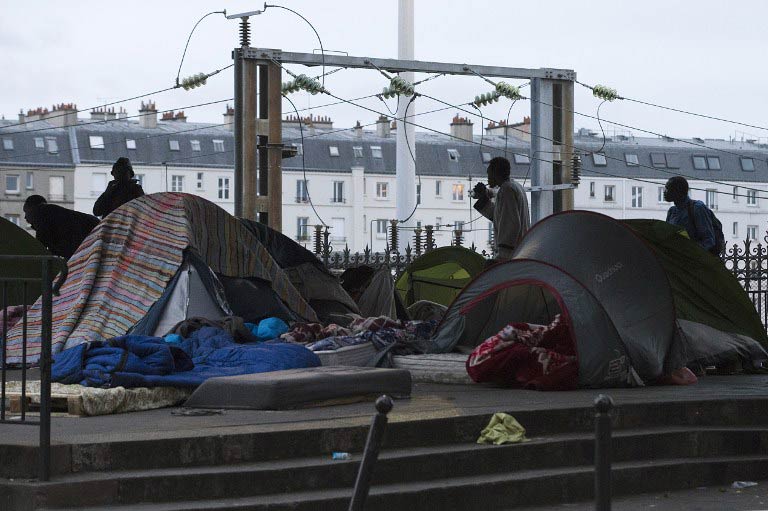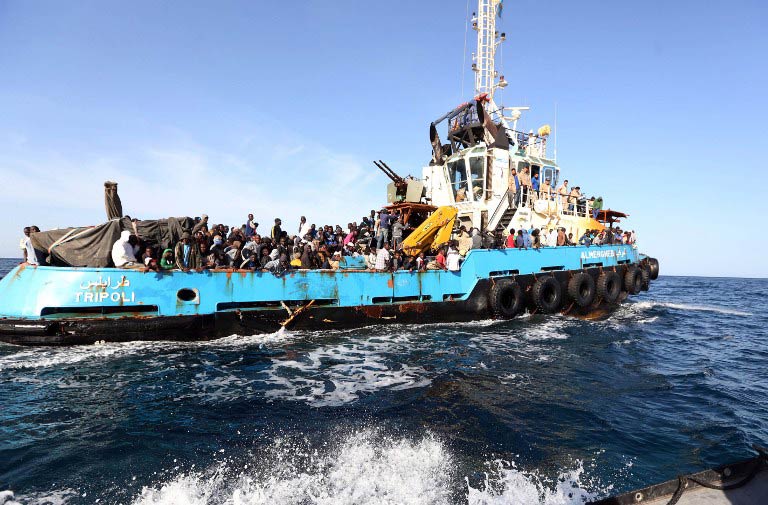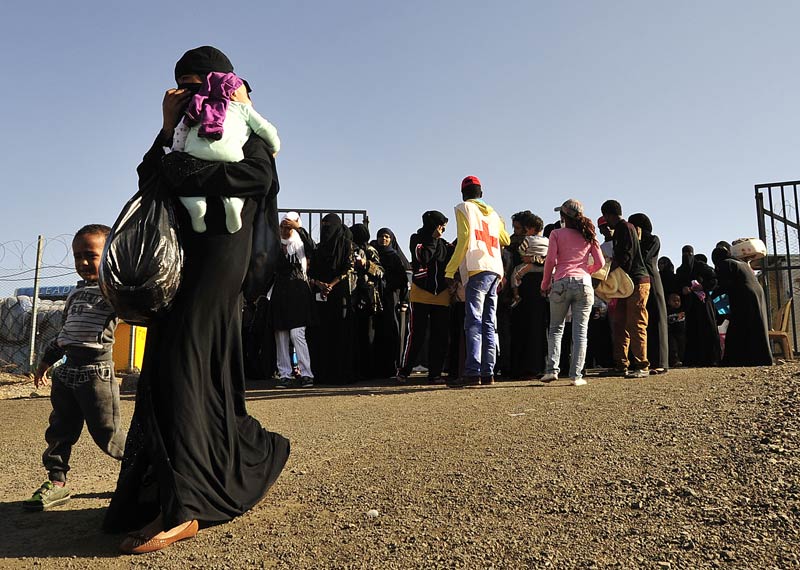
World refugee day was on June 19, and former secretary-general of the United Nations Kofi Annan made a comment on his Twitter handle that was as profound as it was subtle, suggesting that the world must come to terms with a “new normal.”
“It is time to accept the reality that the ebb and flow of human movement cannot be stopped,” Annan tweeted.
More than 1 750 migrants, mostly from West Africa and North Africa and some parts of the Middle East have perished in the Mediterranean Sea since the beginning of the year, attempting to seek “greener pastures” in Europe.
According to the International Organisation for Migration (IOM), this number is more than 30 times higher than that recorded during the corresponding period in 2014.
As the rosy narratives about Africa’s economic growth and burgeoning middle class are vigorously exchanged at talk-shops, the question begs; what would cause thousands to abandon their homes, families and put their lives at risk at sea, facing the risks potential of shipwrecks and possible human trafficking?
Honest and frank
The answer lies in an honest and frank assessment of what they are running from in their home countries – poverty, war, disease and economic distress, and sometimes most of all, lack of social mobility, or at least the belief that you can make something better of yourself.
For many of these migrants, distant lands across the high seas offer potential comfort and the promise for a better future, not only for them, but also for the loved ones left behind.
But this perception of these “greener pastures” often turn into nightmares, as most of those immigrants from Africa who manage to make it to Europe, particularly in the austerity-gripped south, fail to get jobs, an income, decent shelter and thus have to live in squalid conditions.
Some pay as much as $10 000 for this voyage from Africa to Europe, riddled with uncertainty, and the threat of being defrauded, kidnapped, or shipwrecked. This just illustrates the desperation these migrants have, which drives them to such risky lengths.

Xenophobia in South Africa
Moving away from the boat crises, recently, South Africa, Africa’s most developed economy and second largest after Nigeria, witnessed xenophobic attacks on foreigners who have settled in the country over the years.
Most of these immigrants are from countries such as Zimbabwe, Mozambique, Ethiopia and Nigeria; attracted by the “bright lights” of South Africa and have sought to make a living for themselves.
And it has not been easy for them; often enduring waves of xenophobic attacks, first in 2008 and more recently this year, attacks so vicious that a man was stabbed to death in full view of cameras in a street.
Still, they choose to stay put even in such hostile conditions and forego the option of returning to their home countries.
In light of these and many more similar unfortunate events, the world has seen how disjointed the global response to the thorny issue of migrants has been. There has been stand-offs between countries that has even put strains on some diplomatic relations.
In effect, the issue of migrants brings to the fore certain truths that may be unpalatable to some, especially, the more advanced economies.
Contagion
Countries now must be concerned with what happens across their borders, as recent events show just how easy crises in one country can be exported to others in the form of illegal immigrants. In severely depressed economies with suppressed democracies, many people are now voting with their feet; deserting their home countries and making abode in foreign lands.
Upon settling in foreign lands, often, migrants are more inclined to accept lower wages for work, to the obvious discontent of natives in their adopted countries. This calls for countries to hold each other accountable for the way leaders manage their countries in a mutually responsible manner, as the problems in one jurisdiction could potentially become another country’s problems too, if recent immigrant trends are anything to go by.
Simply stated, it is in the best interest of the developed nations to help ensure that the less developed countries continue growing in a sustainable manner, offering opportunity for all citizens.
An en masse migration invariably puts a strain on the social and economic structures of the receiving countries, and if unattended to, this could likely be a hotbed for future conflict.
Well-functioning countries which offer an equal shot for everyone to work and earn a living, which also guarantee rule of law and offer citizens suffrage would certainly make headway in addressing the root cause of migrant crisis, not just for Africa, but in the global context.
Speaking in the wake of the xenophobic waves of violence, South African President Jacob Zuma said, “We have to address the underlying causes of the violence and tensions, which is the legacy of poverty, unemployment and inequality in our country and our continent, and the competition for limited resources.”
As European ministers scramble to come up with a holistic strategy to address the growing crisis of illegal migrants, Africa too would do well to take a cue from this and introspect deeply into why many of its children leave its shores for distant lands.
Yes, Africa is rising but is this much vaunted economic growth all-encompassing and inclusive? Judging from the desperation that drives most to put their lives at risk crossing the seas to a ‘better’ future elsewhere, the answer is a resounding no.
This post by Perry Munzwembiri was first published on MG Africa.


